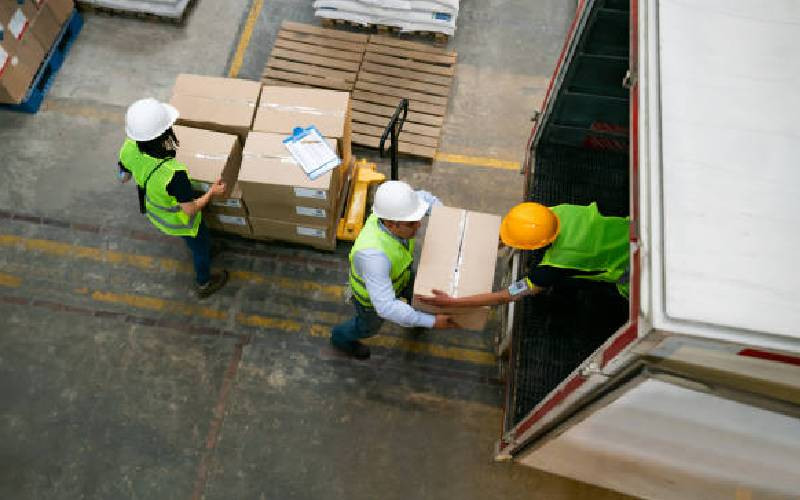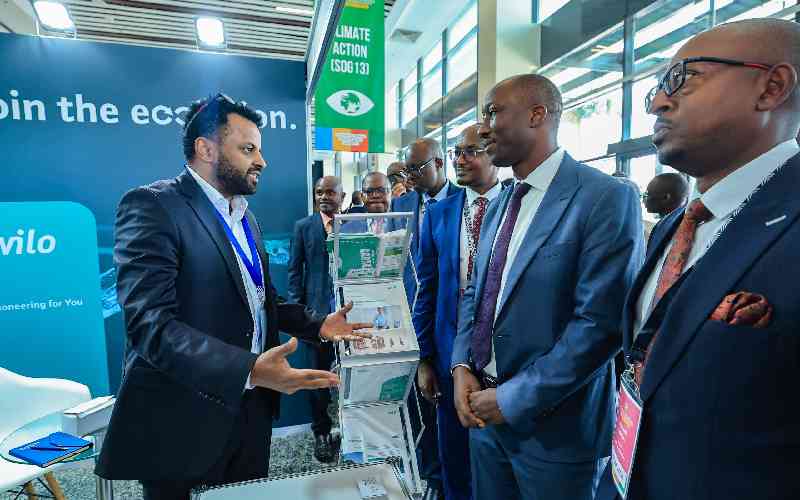
The interest in importing products from developed nations has been growing daily. However, the process is often made difficult by the unreliable online platforms that operate within the import business.
Abner Nyakora pinpointed a gap in this market and resolved to take steps to address it. “Combining my expertise in sourcing from China with my proficiency in the Chinese language, I began assisting small-scale resellers in Kenya to source goods and facilitate their shipment,” Nyakora explains.
The business quickly gained traction and showed promise. Nyakora later teamed up with a former schoolmate, who was still in China, to handle procurement. They also brought on board an operations specialist to oversee the supply chain and ensure the timely delivery of goods to customers.
“Through my high school friend, I met our technical lead, who joined the team to develop the software platform. Once the platform was operational and the process became robust, we hired a marketing lead to drive the platform’s promotion and expand its reach,” he notes.
This marked the founding of Litudian Shipping Company in 2017. “Litudian is a technology platform that is dedicated to digitising the global chain from sourcing to delivery in Africa,” says Nyakora.
“With the leadership of supply chain and technology professionals, our mission is to enable SME (small and medium enterprises) importers to source products from global suppliers and manage end-to-end logistics on the digital platform.”
He notes that through the group-buy system, SME importers come together to meet the high minimum order quantities (MOQs) from global suppliers, thus saving costs. “To mitigate sourcing and import risks, the platform curates suppliers and shippers, while verifying each shipment before delivery to ensure the quality of products and services,” adds Nyakora.
He notes that having a lower purchasing power, importers in Kenya and Africa are competing disproportionally to cost-effectively acquire goods from the global market.
“With Africa having 42 per cent of non-tariff barriers to trade, importation costs are high hence making supply chains costly,” says Nyakora. Litudian offers a group-buy system that allows these importers to save costs by pooling together their purchases and shipping as a single consignment.
By shipping jointly, barriers to trade in the supply chain are mitigated by Litudian’s curated shippers, shipment verification process and online tracking system that allows goods to be shipped at minimum cost and risks hence providing profitability to the importers.
The company mostly works with SME resellers and end users who prefer to import. It has 13 employees who work across four main departments which include supply chain, marketing, finance, and technical.
“Each department has a dedicated leader and outstanding team members who work tirelessly to execute the vision,” he notes. “Our teams are encouraged to have a 360-degree understanding of how the company operates, so roles sometimes cut across departments.”
The charges for the services are based on the transaction value. This ranges between five to 10 per cent of the value of items.
“The commission amount covers the cost to source the product, negotiate the terms with supplier, oversee delivery from supplier to shipper, and most importantly goods verification before shipping to Kenya,” he adds.
Software infrastructure
While starting the business, there were several challenges. “Considering it is a tech platform, building the software infrastructure was painstaking having tried and failed three times. Eventually, we were able to overcome this by choosing the right partner,” he says.
Another challenge was curating suppliers for customers’ products.“We received sub-standard quality which had a negative impact on our customers. However, by listening to our customers, we improved the process by setting up a shipment verification step in China and UAE, our main source locations,” he notes.
He notes that the future goal is diversifying the product portfolio available on the platform by partnering with diverse suppliers to offer the latest trends and technologies on our platform.
“This will make the platform attractive to customers in varying sectors, such as electronics which we have not been focusing on,” he says.
“Additionally, we also plan to extend our reach geographically within Kenya and within Eastern Africa where we believe our services are sought after.”
 The Standard Group Plc is a multi-media organization with investments in media
platforms spanning newspaper print operations, television, radio broadcasting,
digital and online services. The Standard Group is recognized as a leading
multi-media house in Kenya with a key influence in matters of national and
international interest.
The Standard Group Plc is a multi-media organization with investments in media
platforms spanning newspaper print operations, television, radio broadcasting,
digital and online services. The Standard Group is recognized as a leading
multi-media house in Kenya with a key influence in matters of national and
international interest.
 The Standard Group Plc is a multi-media organization with investments in media
platforms spanning newspaper print operations, television, radio broadcasting,
digital and online services. The Standard Group is recognized as a leading
multi-media house in Kenya with a key influence in matters of national and
international interest.
The Standard Group Plc is a multi-media organization with investments in media
platforms spanning newspaper print operations, television, radio broadcasting,
digital and online services. The Standard Group is recognized as a leading
multi-media house in Kenya with a key influence in matters of national and
international interest.










